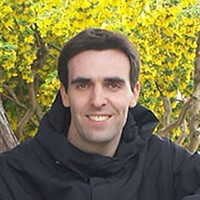How climate skeptics are trying to influence 200,000 science teachers
If you’re a public school science teacher, you’ve got mail. Or if it hasn’t arrived yet, it’s on the way.
The Heartland Institute, a Chicago-based think tank promoting public policy based on individual liberty, limited government, and free markets, has mailed 25,000 copies of its book “Why Scientists Disagree About Global Warming” and an accompanying explanatory DVD to science teachers across the United States. It plans to continue the campaign until all 200,000 K-12 science teachers in the country have a copy.
As the title hints, the organization hopes to convince science teachers that the science of global warming has yet to be settled. Katie Worth described the package in a Frontline story published Tuesday.
Accompanying the materials is a cover letter from Lennie Jarratt, project manager of Heartland’s Center for Transforming Education. He asks teachers to “consider the possibility” that the science is not settled. “If that’s the case, then students would be better served by letting them know a vibrant debate is taking place among scientists,” he writes. The letter also points teachers to an online guide to using the DVD in their classrooms.
The Heartland initiative dismisses multiple studies showing scientists are in near unanimous agreement that humans are changing the climate. Even if human activity is contributing to climate change, the book argues, it “would probably not be harmful, because many areas of the world would benefit from or adjust to climate change.”
For the record, of the nearly 70,000 peer-reviewed articles on global warming published in 2013 and 2014, four authors rejected the idea that humans are the main drivers of climate change. The atmospheric carbon concentration is 44 percent higher than it was in pre-industrial times (and rising), and 2016 was the planet's hottest year ever, breaking the previous record holders 2015 and 2014.
The "vibrant debate" going on in the climate science community concentrates on how bad the warming will be, where it will happen, when it will happen, and how best to prevent it.
The Heartland Institute is right, however, that there will be climate change winners as well as losers. Some expect land value and agricultural productivity to rise in Canada, Russia, and northern Europe as they decline in warm places (Arizona, Nevada) and low, flooding-prone places (Florida).
It’s also true that Americans have less to fear than citizens of some other countries. Michael Greenstone, a professor of environmental economics at the University of Chicago, found no connection between hot days and death in the US, where air conditioning abounds. By way of comparison, raising a single day from 70 to 90 degrees F., in rural India is associated with a 1 percent rise in annual mortality, The Washington Post reports.
How much impact the Heartland Institute’s mailing will have remains to be seen. A survey of 1,500 teachers published in Science last year found that while more half teach climate science as settled, 40 percent tell their students it’s controversial, or deny it outright. With no uniform standards enforcing the teaching of climate science, reaction to and usage of the institute’s book will likely vary from teacher to teacher.
And that suits Heartland president Joseph Bast just fine. “Science teachers are smart. Smarter than the average reporter. Smarter than the average environmental activist,” he said, according to Frontline.
One teacher who won’t be using the book is Lori Baker, a sixth-grade science teacher from Indiana, who described the contents of the package as follows: “I read quite a bit of the book, actually, and it was extremely frustrating. It’s an attempt to sound science literate, but there’s very little actual data,” she told Frontline.
Specifically, she cited the first paragraph of the forward, which called Obama’s description of the threat of climate change as “laughable” in comparison to the terrorist activities of the Islamic State militant group.
“That as a foreword to something claiming to be scientific is pretty shocking,” said Ms. Baker.
Terrorism casualties are on the rise, numbering as many as 30,000 worldwide in recent years. However, a study by European non-profit group DARA estimated that more than 10 times that number of people lost their lives to global warming related health risks such as hunger and illness each year since 2010. Climate change also lowered the annual global GDP by nearly 1 percent. DARA predicts both figures will rise dramatically by 2030.
Both President Trump and the head of the Environmental Protection Agency have expressed views skeptical of global warming, so those hoping for national education standards regarding climate change aren’t holding their breath.
“This is a wonderful time to be a global warming realist,” said Mr. Bast at a conference last week in Washington, D.C. “Those of us in the room who have been working on this issue for a decade or longer can finally stand up and say hallelujah and welcome to the party.”
[Editor's note: This article has been updated to add Michael Greenstone's current affiliation. He is a professor of economics at the University of Chicago.]






